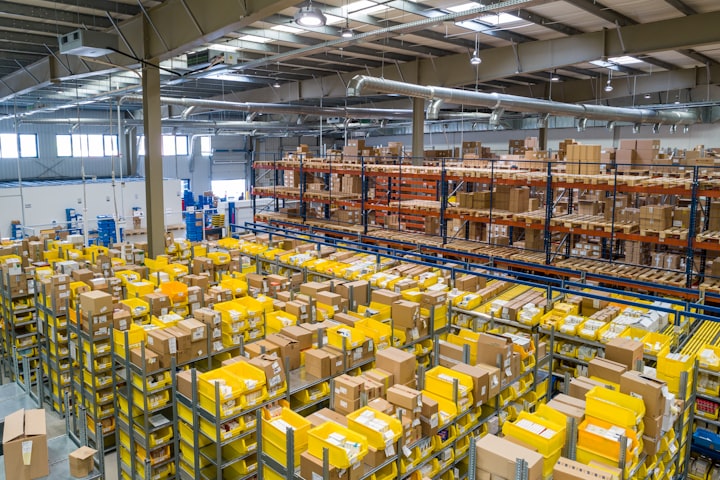
Types Of Logistics Companies
Logistics can be loosely defined as organizing and coordinating the flow of goods and services from supplier to consumer. In other words, it's all about getting things where they need to go in a timely and efficient manner. Many different companies specialize in logistics, each with its strengths and weaknesses. Here is a look at some of the most common types.
Logistics is defined as the management and planning process for transporting people and products from one place to another. This function of transportation is also known as supply chain management.
What are the Types Of Logistics Companies?
The three main logistics branches are third-party logistics (3PL), contract logistics, and non-asset-based transportation.
1) Third-party logistics:
Third-party logistics is a strategy in which the third party provides you with its logistical capabilities to help your company reach its goals in terms of time, costs, or performance. 3PL's can be traditional carriers who offer more than just freight services to their customers.
They might also provide warehousing, truckload brokerage, intermodal equipment leasing, and other logistics-related services that move your product from one place to another. These companies may self perform some or all operations, or they may subcontract their work out to specialist 3PL's for each area where there is expertise; either way, the end result is that it harnesses the full buying power of a major company with multiple lines of business.
There are many benefits when using a third-party logistics service provider:
- Saves time: especially if the business owner has very little experience in this area and doesn't know where to start with planning shipments and orders
- Prevents loss: no more worrying about goods being lost or stolen because they will be put into a warehouse and managed by the logistics company
- Prevents equipment damage: no more worrying about heavy equipment wearing down and needing repairs. This should free up work time for employees who would usually have to focus on maintenance rather than the actual job at hand
Saves money: hiring a third-party logistics service provider can help save extra expenses and allow entrepreneurs and business owners to cut costs in certain areas of their business without consequences later on.
2) Contract Logistics:
Contract logistics companies provide the flexibility needed by the customer base. They offer customized solutions through their contract logistics services. The primary touchpoints in these types of services are warehousing, transportation management, freight brokerage, inventory management, and reverse logistics handling.
3) Non-asset based transportation:
Non-asset-based transportation companies focus on providing an alternative method to transport goods. These companies can include courier deliveries by foot or bicycle, boat travel, train travel, etc. Specialized companies have been set up to meet the needs of the pharmaceutical industry when it comes to transporting fragile, temperature-sensitive products.
4) Traditional transportation:
In addition to 3PL's, contract logistics, and non-asset-based transportation companies, there is another branch: traditional transportation (or asset-based). This has been a reliable and safe method for over 100 years. It involves providers who own their fleet; these include common carriers like railways and airlines, motor carriers which usually transport goods via trucks or trailers on flatbeds, steamship lines that carry large volumes of cargo across long distances in massive ships not equipped with engines (these are called container ships) and less commonly used methods such as waterborne barges or ferries. These companies also provide warehousing services in a trans-loading facility where goods are taken off one truck and placed on another.
5) Intermodal Transportation:
Before deciding what kind of logistics company will work for your business, you need to determine which logistical areas best suit your needs. These can include warehousing, intermodal transportation management, global supply chain management, freight forwarding, shipping services (receiving or sending), ocean transportation, or any combination.
Once you have decided on what kind of service(s) you want to use for your business, it is important to understand how these logistics companies operate to get the best price possible. For example, third-party logistics providers may subcontract some operations while performing others themselves; this means you could end up with a subcontractor who is not as knowledgeable about the industry and may provide a lower quality service.
Conclusion:
Logistics companies are an integral part of any business. They can help you with everything from getting your products to customers promptly to moving supplies around for manufacturing. However, logistics is not one size fits all, and choosing the right company requires research into what type of service or product they offer. This article outlined some common types of logistics companies so that you know what to look for when shopping around for these services.





Comments
There are no comments for this story
Be the first to respond and start the conversation.